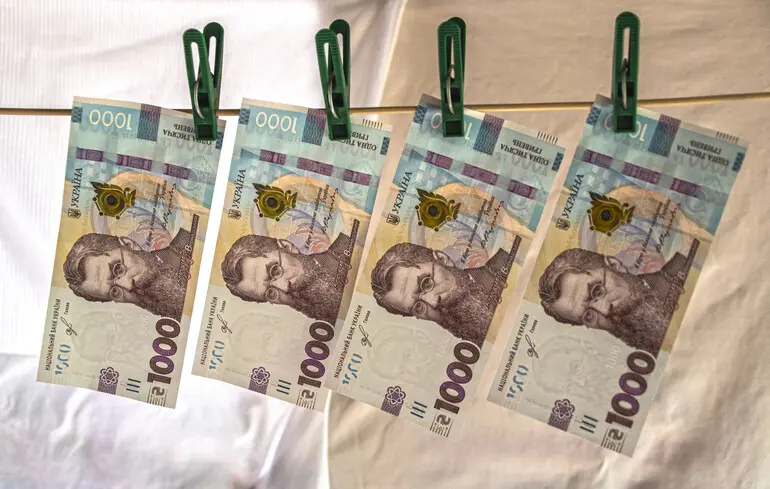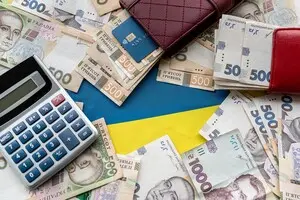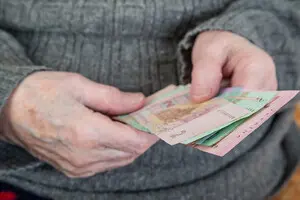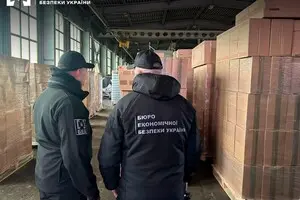Economic Schizophrenia
Since December 2024, the country has received, on the one hand, an increase in taxes, and on the other hand, two gestures of unprecedented generosity in the form of cashback and the announcement of the distribution of “Zelenskyy’s thousand-hryvnia giveaway.” And this is only what is on the surface: the government compensates businesses 15% of the cost of purchasing certain types of equipment, generously subsidizes industrial parks and distributes grants for the development of “priority industries.” Let me remind you that the acutely deficit-laden wartime budget allocated UAH 45 billion for “economic development” — not counting really necessary expenses, such as the restoration and repair of infrastructure. And there is a suspicion that with such generosity at the end of the year this figure will be surpassed....
One “сerebral hemisphere” of the government “brain” (in the broad sense of the word, including the Verkhovna Rada and the Presidential Office) cannot find money to finance the army and arms purchases, demands higher taxes and adopts the National Revenue Strategy with draconian powers of tax officials and hollowed-out simplified taxation — all for the sake of allegedly additional 2% of GDP (somewhere under 150 billion UAH) of tax revenues. At the same time, the other “hemisphere” with unusual ease throws away, or is going to throw away, more than half of this amount on extremely dubious or even harmful (like cashback) projects that cannot be called luxury. Against the background of the first one, the second one looks like a slap in the face to those who will be forced to pay more taxes and to those who give their hard-earned money to help the army.
Of course, there are restrictions on the use of aid: the money of partners cannot be directly used for military purposes, so domestic revenues are needed to finance the army. However, the G7 has already agreed to provide €50 billion in non-refundable aid (from the interest accrued from frozen Russian assets), which will have no such restrictions. Against this backdrop, the tax hike looks like a symbolic gesture in favor of the partners so that they can present it to their taxpayers as an excuse. However, the big (and painful) question is whether it is worth it, given that the country is forced to wage a war of attrition, in which the loser is the one who runs out of resources earlier, of which the patience of the people is the most important and irreplaceable?
But even if we are talking about only that part of the aid that cannot be used for military purposes in the future, are we already doing well with, for instance, infrastructure? Is Ukraine ready for a potentially very hard winter? What would you prefer: to receive a thousand hryvnias in cash or for this money to be used to protect energy facilities and duplicate the power supply to critical infrastructure, so that we don't have to stay in the cold without heat, light or even water?
The state as an institution has many shortcomings, but it justifies its existence by being able to provide public goods that are prohibitively difficult or impossible to acquire individually. For this purpose, it “mobilizes” taxes and other revenues, including aid from partners. In our country, especially on the eve of winter, there is a blatant shortage of these very public goods, meaning not “beautification” and so on, but the most vital ones. Against this background, it looks at least irrational to give away money, even if not your own, for trifles. Especially not to those who are in dire need of it because they have to give up everything they have gained and become an IDP, but to all sorts of buyers of selected domestic goods in selected stores (only large ones, individual entrepreneurs can not work with cashback) or to everyone in general.
Or another example: on the one hand, the government seems to care about the environment: in particular, it categorically refuses to abolish the anachronistic excise tax on cars, although calculations show that this will not reduce budget revenues, but will increase real national income by $1.5 billion annually by increasing the purchasing power of citizens' incomes. And, by the way, it will increase population mobility, which is especially important in a military situation: of those who evacuated en masse at the beginning of a full-scale war, three quarters were able to leave only thanks to the availability of their own car. But the government just can't because, as they say, old cars pollute the air (although, in fact, they displace even older cars, which pollute far more).
At the same time, the same government, in order to “Europeanize” excise taxes on motor fuel, sets the rate for liquefied gas that is four times as high as the rate recommended by the EU directive so as to make conversion of gasoline cars unprofitable. Meanwhile, European lawmakers have established such a “privilege” for autogas for a reason: it has been proved that it produces about half as much harmful emissions and 15% less greenhouse gases per one kilometer of mileage than gasoline. However, in this case everything is simple: lobbyists — importers of new cars — are behind the excise tax on autogas, and those behind the excise tax on autogas are state-owned Ukrnafta and a cartel of “expensive” gas stations, which due to their high margins (for guaranteeing the quality of gasoline and diesel) cannot really compete in the market of much more standard autogas.
The next level of this bifurcation applies not only to the Ukrainian government, but also to some foreign partners. It would seem that they came to us from advanced economies, where bureaucracy is at a qualitatively higher level and should not allow such blunders, but no. With one hand they invest a lot of money in the development of Ukrainian small and micro business, emphasize its importance at all forums, etc.; the priority of the fight against corruption is completely off the charts.
At the same time, with the other hand unnamed “partners,” under the dictation of whom the National Income Strategy (NIS) was allegedly written, demand the emasculation and curtailment of simplified taxation, which is an absolutele necessity for Ukrainian micro and small businesses to survive, require micro-businesses to register as VAT payers starting from the turnover of UAH 1 million, announce total fiscalization and commodity accounting for absolutely all business entities (importantly, the latter are legal) and are going to give the tax authorities draconian powers, such as seizure of assets without court approval.
All these measures, if implemented, will not only kill microbusinesses, but also significantly expand the corruption opportunities of the inspection bodies, which is guaranteed to nullify any attempts to fight corruption in the tax authorities and seriously call into question even the effectiveness of its complete reset.
Moreover, if we take a broader view (not only the economy), the main area to which support is channeled is probably democracy. But the latter, as we know, is impossible without a middle class, and the problem of countries with lower-middle income is that this class is a minority, not a majority, in contrast to rich countries. Worse still, a significant part of it does not behave like a real “third class” because, in fact, it is extremely dependent and embedded in oligarchic or other vertical structures; for example, it is forced to work in conditions of protection racket. That is why in Russia or China, despite the formally high percentage of the “middle class,” autocrats successfully rule.
In Ukraine, they failed to do so, including because by the mid-2000s, a strong entrepreneurial, independent and fairly well-organized middle class — micro-entrepreneurs — had emerged. Though few in number, they were robust. In fact, the simplified tax system was created primarily for this purpose, and it coped with its task perfectly. But since then, attempts to oblige microbusinesses to use absolutely unnecessary cash registers and to keep mandatory accounting have not ceased. They completely emasculate the idea of a single tax by returning entrepreneurs to the informal power of tax officials: 95% of fines related to payment transactions are charged for technical errors, which a non-professional in accounting can not avoid in principle.
The same thing, but on a much larger scale, will happen if mandatory commodity accounting is introduced under the National Revenue Strategy. And those who grow to a turnover of UAH 1 million (which in retail trade corresponds to the income of an average wage) will have a very bad time: they will have to hire an accountant and keep full accounting records required for VAT, with fines and bribes.
In fact, entrepreneurs will go underground, to where they were before the introduction of simplified simplification without accounting and control in 1999, and where 2.2 million legal micro-business jobs went in 2010–2011, when Azarov tried to destroy it with checks of primary documents.
That is, the measures laid down in the National Revenue Strategy, if their implementation is allowed, will reverse the reform of 1998–1999, as a result of which the legal independent middle class, if not cease to exist, will be guaranteed to lose its most “capable” part. And what will all the grants allocated for the development of democracy be worth then? Or does anyone think that the EU will be able to replace the middle class as its “watchdog”? Look at Hungary...
Inconsistent policies cannot succeed. Both our government (broadly speaking) and partners need to choose a policy so as not to do harm or at least not to waste precious resources. Yes, they may not always realize what they are doing, or the right hand may not know the doings of the left. Or lobbyists intervene, as in the case of excise taxes.
But rational power differs from arrogance and dilettantism by the consistency and thoughtfulness of its decisions.
Please select it with the mouse and press Ctrl+Enter or Submit a bug
















 Login with Google
Login with Google